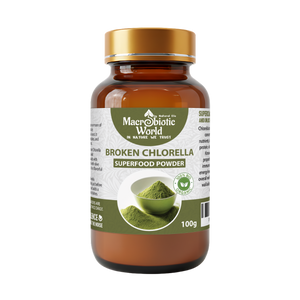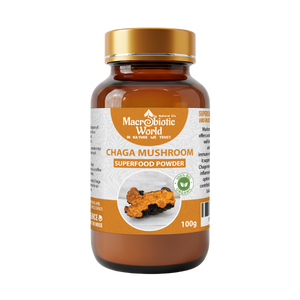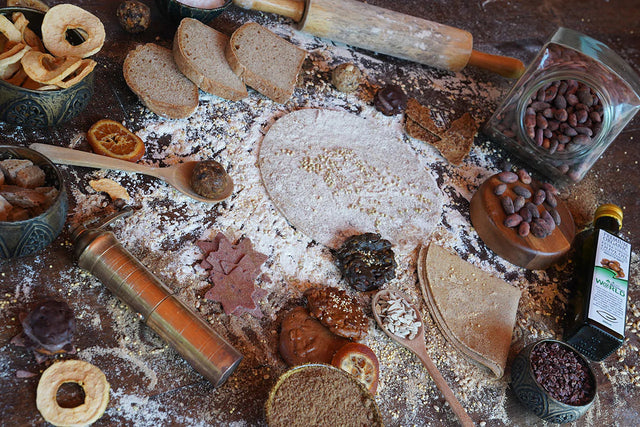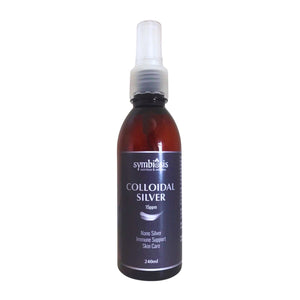Organic / Bio Sunflower Butter

THE NEW SELECTION OF BIO/REGENERATIVE ORGANIC CREAM SUNFLOWER BUTTERS ARE RICH IN NUTRIENTS WHICH WILL IMPROVE YOUR HEALTH
"NATURAL EFE- MACROBIOTIC WORLD" WISHES TO SHARE NUTRITIONAL FACTS AND TIPS, RESULT OF OUR CAREFUL
EXTENSIVE RESEARCH.
IT WILL COMPLEMENT ESSENTIAL KNOWLEDGE AND BRING IMPROVEMENTS IN THE WAY YOU COOK AND EAT.
A SIMPLE AND NATURAL WAY FOR OPTIMAL HEALTH.
IT IS ALSO A PLEASANT AND INTERESTING READING, WE STRONGLY ADVICE YOU TO FOLLOW THE SERIES.
IMPORTANT QUALITIES OF EACH SEED, GRAIN, AND PLANT VALUES WILL BE FEATURED.
LET US BEGIN WITH SUNFLOWER SEEDS.
Looking for a health-promoting snack?
Enjoy a handful of mild nutty tasting sunflower seeds with their firm but tender texture to take care of your hunger and get a wealth of nutrition at the same time.
To add ease and pleasure in enjoying Sunflower Seed pits we Stone Grind
them into a smooth cream.
Pure or eaten as a Bread spread, mixed with other Seed Creams such as Sesame,
Cashew Nuts, Hemp, Almonds, Hazelnuts, Walnuts, also to be used in a great variety of dishes, to create sauces and creamy soups.
They are also great for dessert topings and fillings, added to smoothies and juices Will surprise you.
Health Benefits
While enhancing your health by supplying significant amounts of Alpha Vitamin E, Magnesium and Selenium.
It is an Anti Inflammatory and Cardiovascular protector through the very high content of Alpha Vitamin E - (Alpha Tocopherol) 22%.
the body's primary fat-soluble antioxidant.
Vitamin E travels throughout the body neutralizing free radicals that would otherwise damage fat-containing structures and molecules, such as cell membranes, brain cells, and cholesterol.
By protecting these cellular and molecular components, Vitamin E has significant anti-inflammatory effects that result in the reduction of symptoms in Asthma, Osteoarthritis, and Rheumatoid Arthritis, conditions caused by lack of this Vitamin and essential Fatty Acids
Vitamin E has also been shown to help decrease the severity and frequency of hot flashes in women going through menopause.
It plays a big role in the health condition of Diabetes.
" Request In-Depth Medical Facts about its relation to metabolic path in Diabetes"
Send us E- Mail :
Vitamin E is one of the main antioxidants found in cholesterol particles and helps prevent free radicals from oxidizing cholesterol.
Only in the absence of Natural Lecithin Cholesterol is able to adhere to blood vessel walls and initiate the process of Atherosclerosis, which can lead to blocked arteries, heart attack, or stroke.
Getting enough Vitamin E can significantly reduce the risk of developing Atherosclerosis.
In fact, studies show that people who get a good amount of vitamin E are at a much lower risk of a heart attack than people whose dietary intake of vitamin E is marginal or inadequate.
Phytosterols are compounds found in plants that have a chemical structure very similar to cholesterol, and are also important in the Fat metabolismo.
Phytosterols beneficial effects are so dramatic that they have been extracted from soybean, corn, and pine tree oil and added to conventional processed foods, such as "butter"-replacement spreads, which are then touted as cholesterol-lowering "foods."
But why settle for an imitation "butter" when Mother Nature's nuts and seeds are a naturally rich source of phytosterols—and cardio-protective fiber, minerals and healthy fats as well?
In a study in the Journal of Agricultural and Food Chemistry, researchers published the amounts of phytosterols present in nuts and seeds commonly eaten in the United States.
Sesame seeds had the highest total phytosterol content (400-413 mg per 100 grams), English Walnuts and Brazil nuts the lowest (113 mg/100grams and 95 mg/100 grams). (100 grams is equivalent to 3.5 ounces.)
Of the nuts and seeds typically consumed as snack foods, Sunflower Seeds and Pistachios were richest in phytosterols (270-289 mg/100 g), followed by pumpkin seeds (265 mg/100 g).
Calm Your Nerves, Muscles and Blood Vessels with Sunflower Seeds' Magnesium
Sunflower seeds are a good source of Magnesium. Numerous studies have demonstrated that Magnesium reduce the severity of Asthma, Lowers High Blood Pressure, and prevent Migraine Headaches.
Magnesium is also necessary for healthy bones and energy production.
About two-thirds of the magnesium in the human body is found in our bones. Some help give bones their physical structure, while the rest is found on the surface of the bone where it is stored for the body to draw upon as needed.
Prevention from Sunflower Seeds' Selenium
Sunflower seeds are also a good source of Selenium, a trace mineral that is of fundamental importance to human health.
Selenium has been shown to induce DNA repair and synthesis in damaged cells.
In addition, Selenium is incorporated at the active site of many proteins, including glutathione peroxidase, which is particularly important for immunity .
One of the body's most powerful antioxidant enzymes, glutathione peroxidase is used in the liver to detoxify a wide range of potentially harmful molecules. When levels of glutathione peroxidase are too low, these toxic molecules are not disarmed and wreak havoc on any cells with which they come in contact, damaging their cellular DNA, its Selenium richness is another reason that Sunflower Seeds can make a good snack.
Description
Shelled Sunflower Seeds are called Sunflower Pits, have a mild nutty taste, firm but tender texture. The taste is often times compared to the Jerusalem Artichoke (not to be confused with the bulb artichoke), another member of the Helianthus family.
History
While Sunflowers are thought to have originated in Mexico and Peru, they are one of the first plants to ever be cultivated in the United States. They have been used for more than 5,000 years by the Native Americans, who not only used the seeds as a food and an oil source, but also used the flowers, roots and stems for varied purposes including as a dye pigment. The Spanish explorers brought Sunflowers back to Europe, and after being first grown in Spain, they were subsequently introduced to other neighboring countries.
Currently, Refined Sunflower Oil is one of the most popular in the world.
Today, the leading commercial producers of Transgenic Sunflower seeds include the Russian Federation, Brazil, Peru, Argentina, Spain, France and China.
Another strong reason to look for "Regenerative Organic" - Non-GMO Sunflower Seeds.
Since Sunflower Seeds have a special fat content rich in Alpha Linoleic Fatty Acid , the now popular "Omega 6",and are prone to oxydation it is best to store them in the refrigerator.
It can also be stored in the freezer since the cold temperature will not affect their texture or flavor.
Tips for Preparing and Cooking
.How to Enjoy
A Few Quick Serving Ideas
Garnish mixed green salads with sunflower seeds.
Adding Sunflower Butter to sauces and dishes will give them a unique taste and texture.
Sprinkle sunflower seeds onto hot and cold cereals.
As a Bread spread with Original Misso paste, is a delicious Synbiotic combination.
Mixed with other Nut butters, also with a bit of Honey for healthy Sweet treats.
Nutritional Profile
Sunflower seeds are an excellent source of Vitamin E and a very good source of Copper, Vitamin B1.
In addition, Sunflower Seeds are a good source of Manganese, Selenium, Phosphorus, Magnesium,Vitamin B6, Folate and Niacin.
Sunflower Seeds,
0.25 cup
35.00 grams
Calories: 204
GI: low
Vitamin E12.31 mg
Copper 0.63 mg
Vitamin B 10.52
Selenium 18.55mcg
Phosphorus 231.00mcg
Manganese 0.68 mg
Vitamin B 60.47mg
Magnesium113.75 mg
Folate79.45 mcg
Vitamin B32.92 mg
In-Depth Nutritional Profile
In addition to the nutrients highlighted in our ratings chart, here is an in-depth nutritional profile for Sunflower seeds.
This profile includes information on a full array of nutrients, including carbohydrates, sugar, soluble and insoluble fiber, sodium, vitamins, minerals, fatty acids, amino acids and more.
Sunflower Seeds,
The nutrient profiles provided above are derived from The Food Processor, Version 10.12.0, ESHA Research, Salem, Oregon, USA. Among the 50,000+ food items in the master database and 163 nutritional components per item, specific nutrient values were frequently missing from any particular food item. We chose the designation "--" to represent those nutrients for which no value was included in this version of the database.
References
Ensminger AH, Ensminger, ME, Kondale JE, Robson JRK. Foods & Nutriton Encyclopedia. Pegus Press, Clovis, California. 1983.
Ensminger AH, Esminger M. K. J. e. al. Food for Health: A Nutrition Encyclopedia. Clovis, California: Pegus Press; 1986. 1986. PMID:15210.
Fortin, Francois, Editorial Director. The Visual Foods Encyclopedia. Macmillan, New York. 1996.
Phillips KM, Ruggio DM, Ashraf-Khorassani M. Phytosterol composition of nuts and seeds commonly consumed in the United States. J Agric Food Chem. 2005 Nov 30;53(24):9436-45. 2005. PMID:16302759.
Vogt, T. M. Ziegler, R. G. Graubard, B. I et al. Serum selenium and risk of prostate cancer in U.S. blacks and whites. Int J Cancer. 2003 Feb 20; 103(5):664-70. 2003.
Wood, Rebecca. The Whole Foods Encyclopedia. New York, NY: Prentice-Hall Press; 1988. 1988. PMID:15220.
__________
More info:
-------------
-------------
-------------






Leave a comment